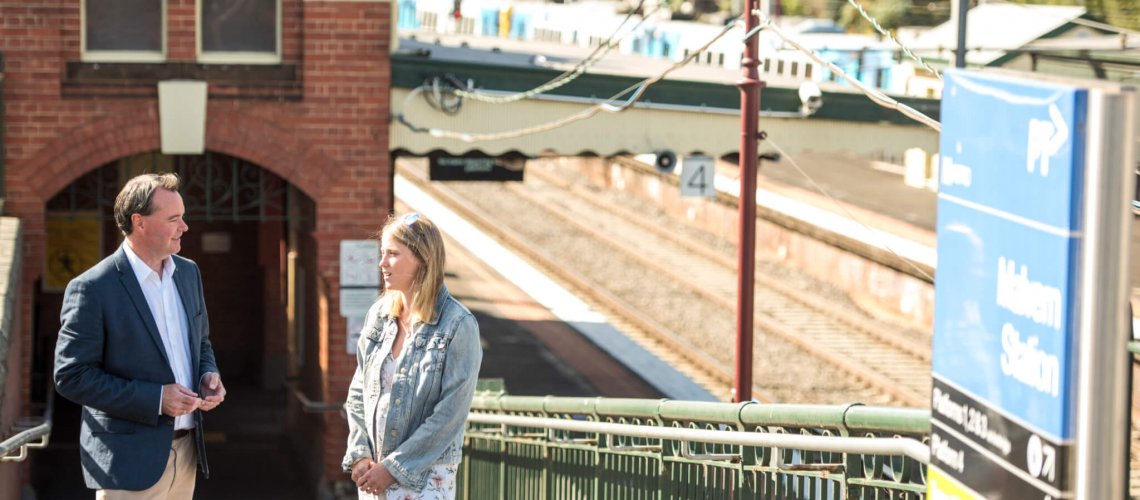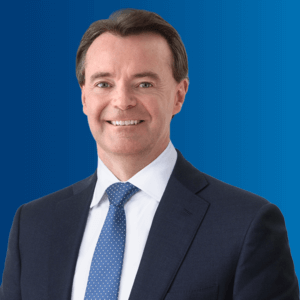Deputy Speaker, my congratulations to both you and the Speaker on your election to high office.
I feel greatly honoured to stand in this chamber as the representative of the people of Malvern, and I thank them for the trust they have placed in me. I am the sixth member to represent Malvern since the district was created in 1945. While, like each of my predecessors, I am a member of the Liberal Party, I am conscious that I am charged with the duty to represent all of the people of Malvern, and I will strive to do so to the very best of my ability.
Malvern has been well served in this chamber in the past. I wish to particularly acknowledge the excellent contribution made by my immediate predecessor, Robert Doyle, as both the member for Malvern and Leader of the Liberal Party, and place on the record my thanks to Robert on behalf of both those constituencies. Robert’s tireless efforts and commitment to quality education and a better health system served Malvern and Victoria well.
Another distinguished former member for Malvern is the Honourable Lindsay Thompson, who served as Minister for Education for a record 12 years and as Premier from 1981 to 1982. As education minister, Lindsay built the foundations of Victoria’s modern education system. He is a man of policy conviction and personal courage, and was respected on both sides of the chamber.
It is no coincidence that these two former members for Malvern are particularly associated with the field of education. One of Malvern’s distinguishing features is the outstanding quality of its schools, some of them government schools but many of them independent. We must cherish the choice that provides, because parental choice is the keystone of a responsive, vibrant and diverse education system — a system that enables any parent or any child to find a school that reflects their values, whether that school be in the government or in the independent sector.
The people of my electorate embrace school choice and quality in education, as do I, because education is fundamental to realising the goal of a society where every individual has the opportunity to develop his or her talents and abilities to their full potential. Education does more than open minds: it opens hearts, and it opens doors.
My mother, Toni O’Brien , brought up her two boys single handed, with her family a world away in Ireland. Yet despite the many difficulties she faced, and at considerable personal and financial sacrifice, my mother ensured that my brother and I received an education that equipped us to take our place in the world with confidence. For that, and for her love and so much else that I can never adequately express, I thank her and acknowledge her presence here today.
I suspect that I am not the first member to say that he became politically charged while at school and university. I joined the Liberal Party in 1989.
That was my final year of school and the year in which the Berlin Wall fell. It was a wall which sought to imprison an entire population and symbolised the immorality of an ideology which placed the individual — every individual — at the service of the state. The year 1989 was also the time of the Cain government in Victoria. I am not sure which of those events had the greater influence on my decision to join the Liberal Party, but it is not a decision I have ever had cause to regret.
My political education continued when I enrolled at the University of Melbourne, only to find that what purported to be a bastion of academic freedom and intellectual inquiry operated as a closed shop. This affront led me to join the Melbourne University Liberal Club, of which I have the honour to be a former president and life member, as is the honourable member for Box Hill. Friendships forged in those days with people such as Ian Pattison, Katherine Forrest, Christopher Muir and Scott Ryan have enriched my life and proven that good humour is as essential to politics as it is to life.
I also had the good fortune to learn much about politics from my time working with the federal Treasurer, the Honourable Peter Costello. In 1999 Peter took a chance on a young solicitor, offering him a job as legal counsel on his staff. I thank Peter for throwing caution to the wind all those years ago and for his continued friendship and support.
I also acknowledge the extended family I had in that office, including Elizabeth McCabe, Niki Savva and my former Canberra housemates Mitch Fifield, Tony Smith and Robert Jeremenko. It is a matter of some relief that those walls cannot speak.
As a practising barrister who is now hanging up his robes I would be remiss if I did not refer to a growing concern within the legal profession.
One of the fundamental tenets of our democracy is the independence of the judiciary from the other arms of government. However, that independence is placed under pressure if appointments to the bench are stated to meet any criteria other than strict judicial merit. Any suggestion that judicial appointments ought to be representative of the community, or particular sections of it, is misguided and damaging to the administration of justice.
A court is not a representative forum. That is the privilege and the duty of Parliament, and Parliament alone. A court is a place for the dispensation of justice according to law, and judicial appointments must not be tainted by factors irrelevant to that fundamental task.
Whether it is despite my previous experience in the practise of law and in politics or because of it, I enter this Parliament acutely conscious of the power of government but equally cautious of its potential for misuse.
Over 150 years ago Abraham Lincoln wrote:
The legitimate object of government is to do for a community of people whatever they need to have done, but cannot do at all in their separate and individual capacities. In all that the people can individually do as well for themselves, government ought not to interfere.
I adopt Lincoln’s wise words.
As legislators we must accept our limitations; accept that we are sovereign but not omnipotent; accept that legislative actions by their very nature tend to uniform application when so many individual problems require individual solutions — solutions that are often beyond the understanding of government, much less within the competence of government to provide.
Instead, we must be prepared to place greater trust in our fellow Victorians — trust them as individuals, trust them as families and trust them as communities; trust their industry, their commonsense, their compassion, their sense of justice and their decency; and trust them to do for themselves those things they are capable of doing and to do those things better than can government.
I am confident that Victorians, given the opportunity, will honour that trust.
This brings me to the question of federalism in Australia. Under the Australian constitution our nation is constructed as a federal system. National and state governments are each sovereign, with their own powers and areas of legislative responsibility. This division of powers is not only a product of the wisdom of our constitutional founding fathers, it is a product of the wisdom of the Australian people who ratified our constitution at referenda.
Federalism has a popular mandate in this country that must not be ignored. Moreover, it is a sensible system for a country the size of Australia, where the needs of Cape York may be vastly different from the needs of Cape Woolamai.
Federalism encourages the states to compete, to compare and to contrast. The states have the freedom to act as policy laboratories, to innovate in health, to find new ways to combine economic growth with environmental conservation and to meet the challenges of an ageing population.
And where policy mistakes are made in any one state, under a federal system the consequences of those mistakes are quarantined to that state rather than inflicted on the nation as a whole.
There have been many challenges to the operation of our federal system and the role and powers of the states since 1901. The High Court’s tendency to favour the legislative power of the national government at the expense of the states is one. Vertical fiscal imbalance is another, although recent tax reform measures have done much to alleviate that concern.
The latest challenge is, to some extent, self-inflicted. It is the challenge of relevance. Specifically, unless states are prepared to demonstrate that they are willing and able to take responsibility — financial responsibility and political responsibility — for their constitutionally prescribed duties, our citizens will rightly question what it is that we do and why their taxes fund us.
I fear that the influence of our state is diminishing, and we must act now to address the causes that are within our capacity to influence. This is not to say that harmonisation and cooperation between the states and the commonwealth do not have an important place. They do. However, uniformity and centralisation do not, of themselves, benefit the state or the nation.
Each issue must be judged on its individual merits.
We cannot claim state rights without accepting state responsibilities. Failure to accept those responsibilities will lead to our citizens turning elsewhere for solutions and to other levels of government stepping into the vacuum, for which we could blame no-one but ourselves.
I sought election to this place to be part of a sovereign Parliament, deliberating and legislating for the good government of Victoria, not to merely be a service provider. So if we wish for Victoria to continue as a sovereign state, we must act like one. That means no more finger pointing and no more blame shifting. That means embracing responsibility for those areas constitutionally reserved to the states rather than looking for opportunities to pass political and financial responsibility to Canberra.
It means displaying policy innovation and showing that Victoria can lead the way — the brightest point in the federation star. The continued relevance of this Parliament and of our federal system of government depends on our response to this challenge.
Any successful candidate for election knows that his or her success is a team effort. I wish to thank the Liberal Party’s members in Malvern, especially my electorate chairman, Warren Samuel; the vice-chairman, Stewart Stribling; my campaign manager, Narelle Sheezel; and the Deputy Leader of the Opposition in another place, the Honourable Andrea Coote. My thanks also to the hardworking professionals at 104 Exhibition Street, led by state president Russell Hannan, and state director Julian Sheezel. They all kept me cool, calm and elected.
Closer to home my brother, Conor, has been a great friend, a best man and a wise political counsel over the journey to date.
I place on the record my thanks and my affection. I am also very fortunate to have a father-in-law of the acumen and good humour of Les Groves.
Finally, to my wife, Michelle, and my children, Eleanor and Reagan: Michelle, you are my partner in life, my best friend, my greatest supporter and my most perceptive critic. Without your love and support I could not stand here today, nor would I wish to. And to my two beautiful young children, who mean the world to me, I hope and pray that my endeavours in this chamber, and those of all members present, make this great state of Victoria an even better place for you, and for every child, to make your homes and follow your dreams.


